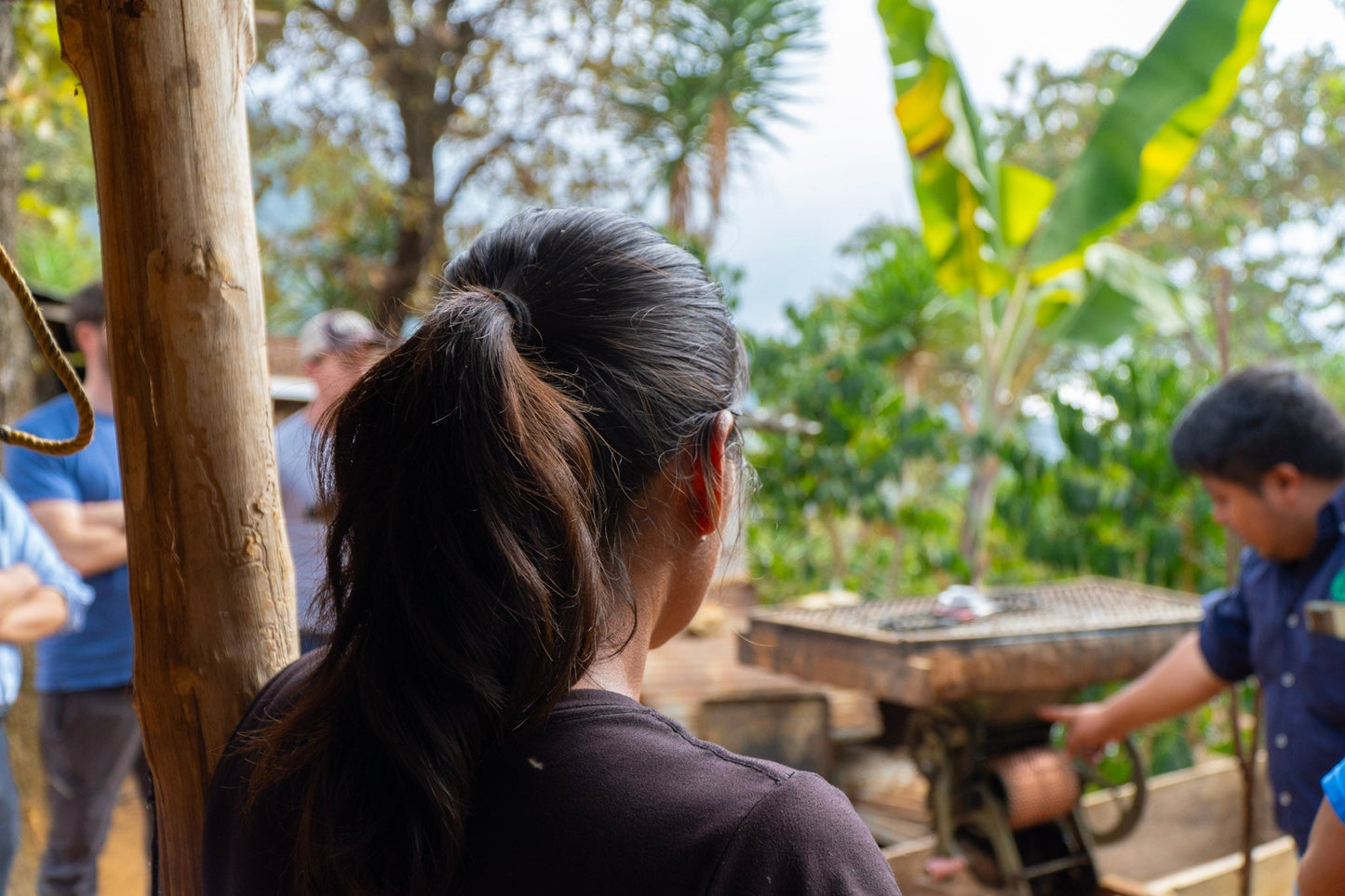
Behind every sip, there is an intricate story woven by the hands of this coffee farmer, Alva Flores. With passion and dedication, she carefully nurtures the coffee plants, ensuring they receive the perfect balance of sunlight, shade, and water. It is this delicate attention to detail that allows the beans to develop their complex flavors, delivering a sublime experience with each sip.
Join our founder, Brendon Maxwell, as he shares his experiences and reflections during his 3-month stay in Oaxaca, Mexico. In this journal entry, Brendon takes you on a journey through the vibrant culture and coffee farming traditions of this captivating region. Discover the hidden gems, meet local coffee farmers, and gain a deeper understanding of the process behind your morning cup of coffee.
I've had a lot of dreams in my life. Some were scary ones that woke me up when I was little; Some took my mind on a wandering journey during less-than-engaging school days; And one, I'm in the midst of living out right now in Oaxaca, MX. Ever since my high school days when I visited my older brother who was studying abroad, I've had a desire to spend an extended season in another country. And 10 years ago, before my wife and I were married and had kids, I shared this same passion with her, hoping that she would feel the same. Fast forward and we're now living for 3 months in the beautiful and welcoming state of Oaxaca, MX, where Utopian has been sourcing specialty coffee for more than four years.
One of my favorite questions to ask coffee producers is, "What are your dreams for your future?". They are often thrown off by this question and I/we go further to explain that we don't just want it to be about coffee or their farm, but it can be any dream. I love the answers that result from this. Like most of us humans around the globe, these dreams often have to do with a desire to create a better life for the next generation. Whether it has to do with their kids getting a better education or growing up in safer conditions (as was the case in the conflict areas we've operated in), I'm always humbled by the overlap in people's yearnings. So when I asked this question to one of our producer partners a few weeks ago and heard "un motor," I was the one who was a little thrown off. As we dug deeper and received the explanation that Alva and her husband, Aniceto, had spent hours cranking away on their manual de-pulping machine (which extracts the coffee seeds from the fruit) only to yield a relatively small amount of coffee, it became clear. We were now talking about quality of life, investment into other parts of the coffee quality process, and being able to spend more time together as a family, not stuck at a depulper, exhausting your body at the end of an already arduous day. After talking to the agronomist and our exporting partner, we figured out the cost and the logistics of getting the motor to them.
After an extensive amount of time studying, both in more academic settings as well as on the ground throughout the developing world, including a stint with the largest microlending organization in South Africa, I've learned that there is a real tension that exists with buying/gifting someone an item in this context. It can make the giver feel as if they've accomplished something profound and "saved" this person and it can often make the recipient feel indebted, creating a power dynamic that ultimately isn't helpful or healthy. We knew that if we were going to do this, it had to be done in a manner that didn't set this as the stage.
Weeks after Alva expressed her dream of having a motor, three of my Utopian co-workers and I were able to return to her house, which also incorporates her specialty coffee processing area. As we unboxed the motor together, I didn't want to mince words, so I asked our export partner to help translate. I told Alva and Aniceto that this wasn't a gift. It wasn't a handout. It wasn't because we like them (although we do). We brought this motor because we believe in them and in the partnership we have and want to show that we trust them. We want them to know that they are respected as coffee professionals and if they are able to produce a higher quality coffee because they now have the time to focus on other parts of the process, it's good for everyone. This isn't charity, this is partnership. Some skeptics or cynics may say dreams don't come true. In Oaxaca, I'm seeing and experiencing otherwise.
